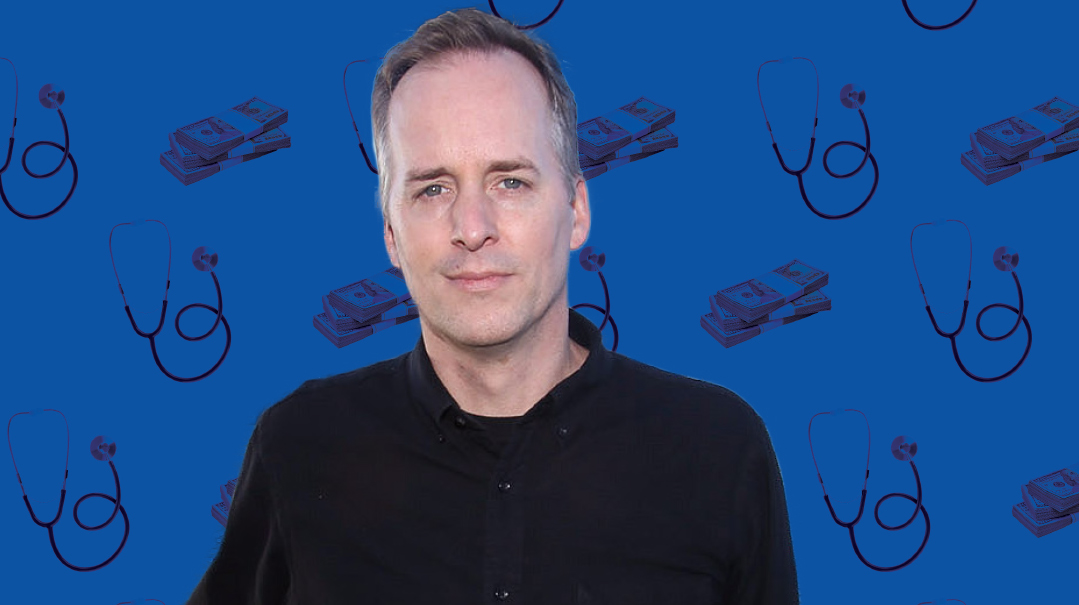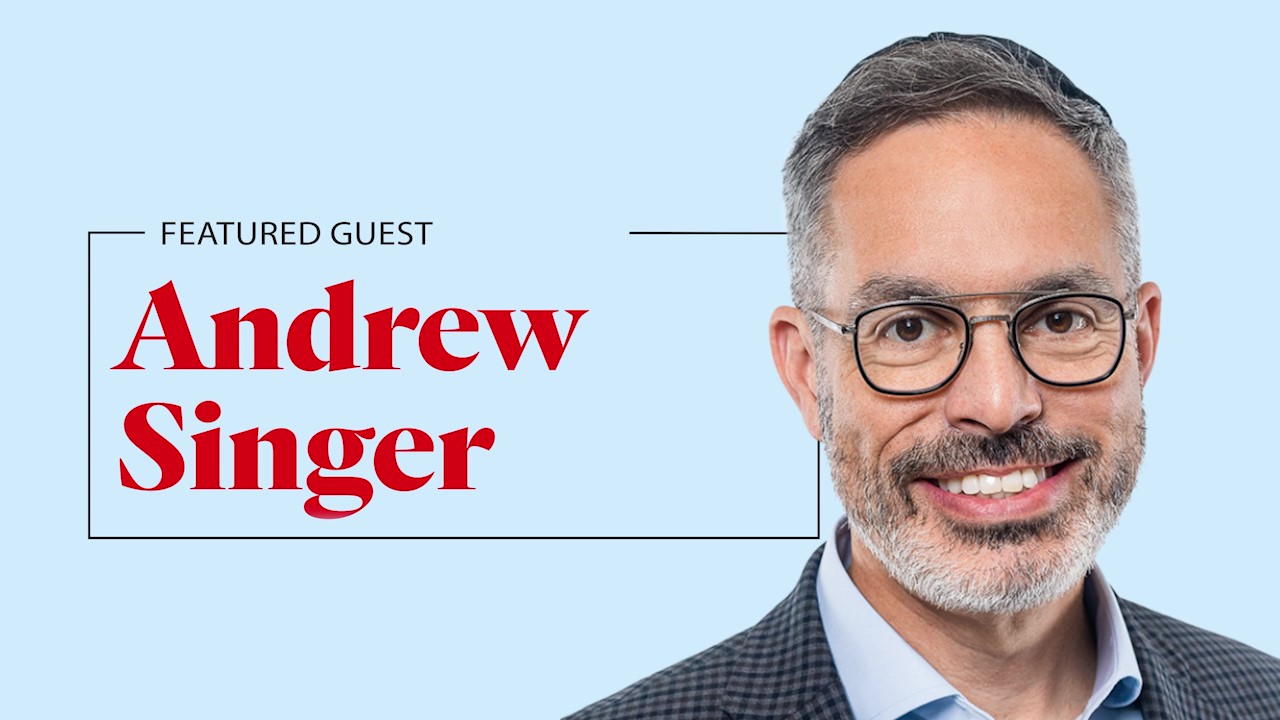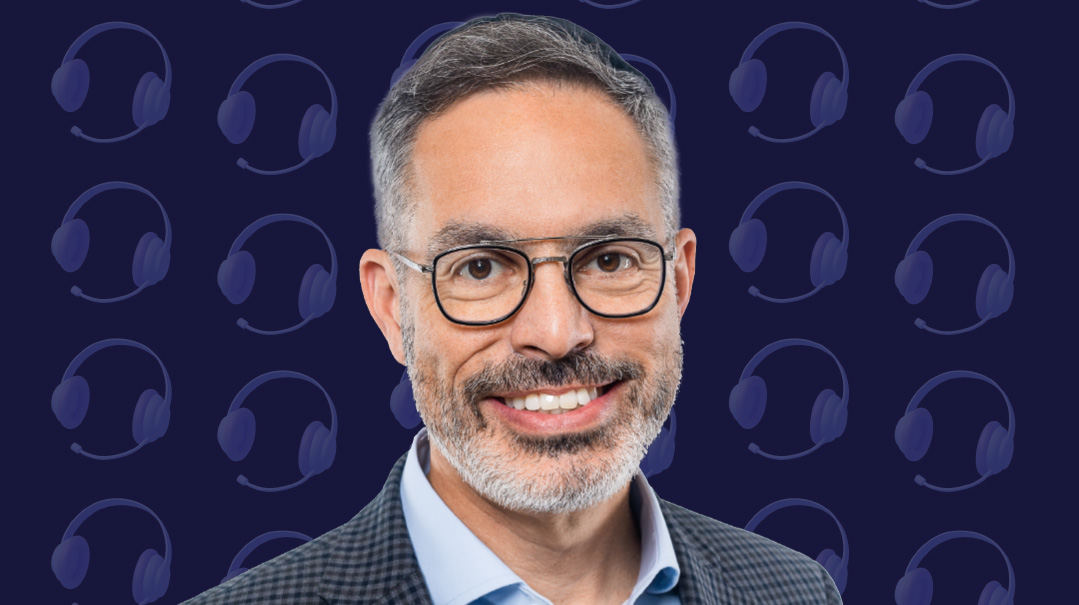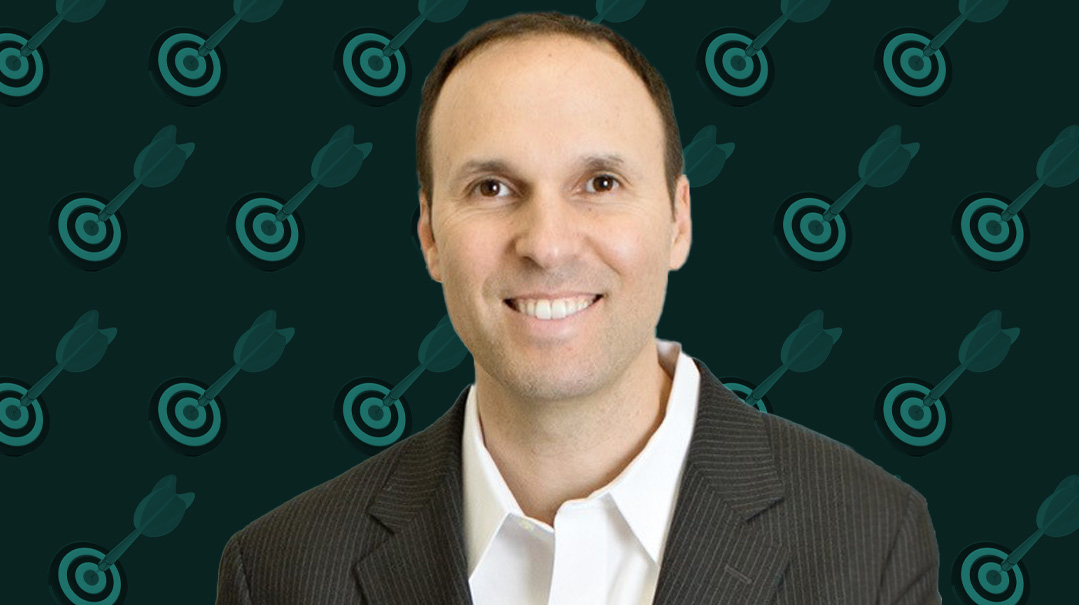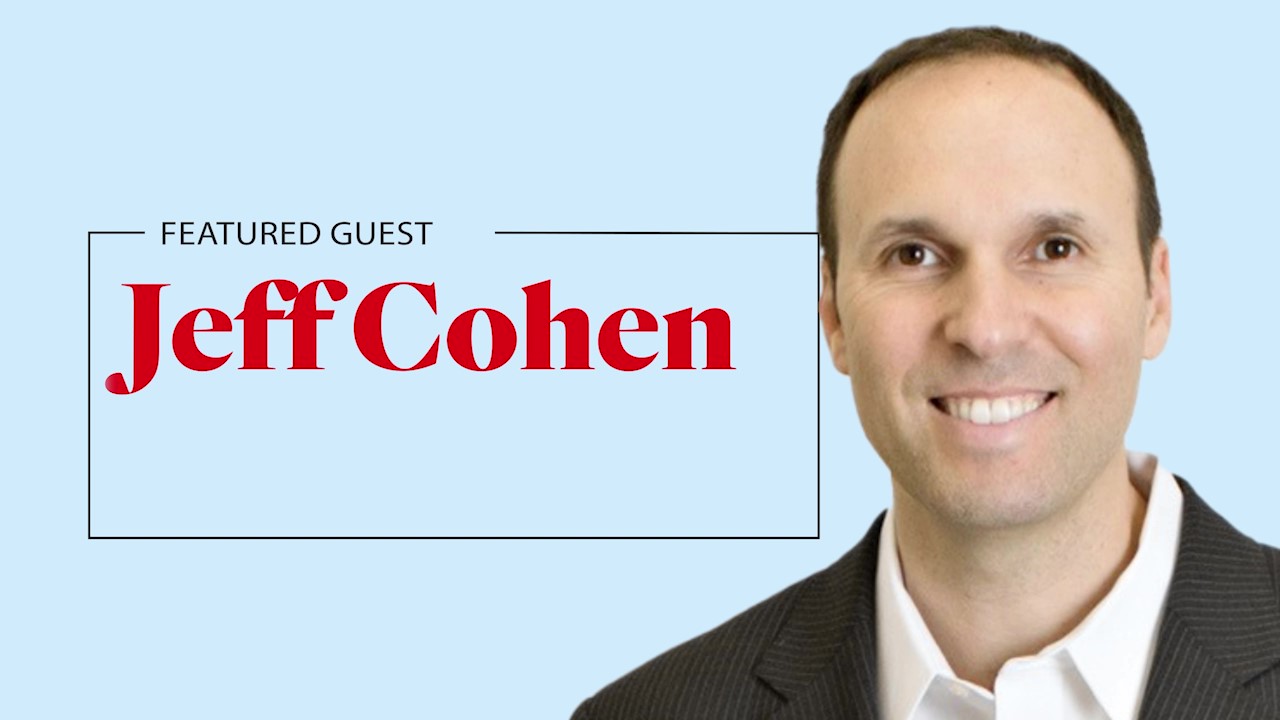Money Talks with Dave Ramsey
| February 21, 2023Dave Ramsey says the foundation of his system is common sense, biblically based wisdom smart spending
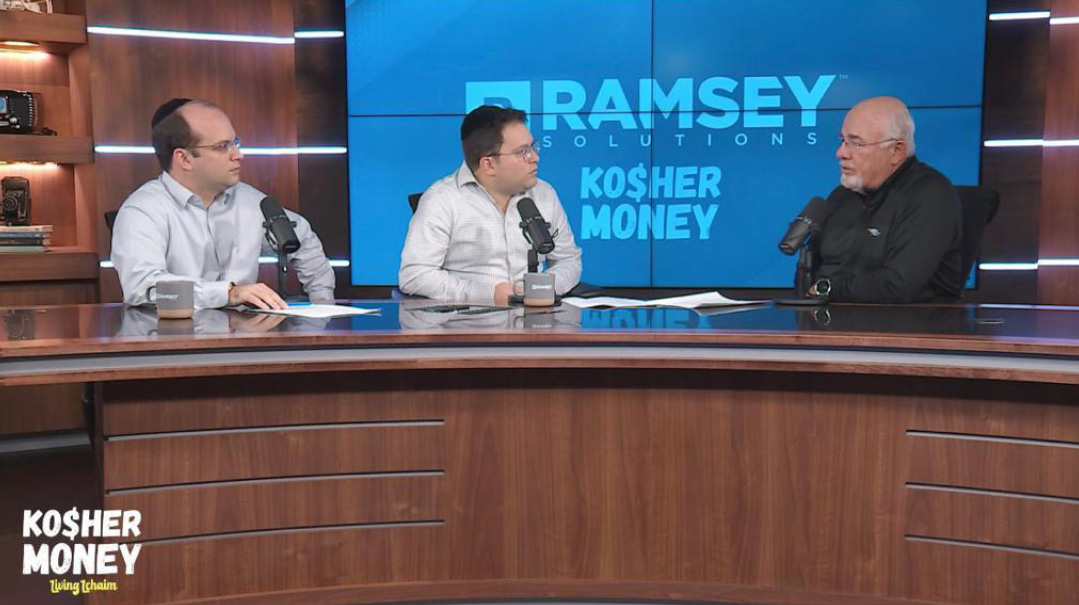
Smart Spending with Dave Ramsey
He’s America’s leading authority on personal finance, and his bold, uncompromising approach has saved thousands of families from crushing debt. But Dave Ramsey says the foundation of his system was there all along — it’s common sense, biblically based wisdom.
For your typical frum family, however, the needs are higher and less negotiable. Does the Dave Ramsey approach still apply? Can his financial principles lighten the burdens of yeshivah tuition, housing, and kosher food? Kosher Money sat down with America’s personal finance guru to find out
Dave Ramsey is America’s most famous personal finance expert. He’s been featured on multiple media outlets and, most recently, on Kosher Money.
He’s known for his unique perspective. No debt. No credit cards. Minimal mortgages. Instead, spend what you have — and not a penny more.
“It’s not my stuff,” Dave says when asked to share a bit about his philosophy. “I just stole it from G-d and your grandmother. It’s common sense.” And it’s also biblically based, he explains. “The Bible has principles for handling money, which we all agree are the truth. The more you align with those, the better your life will be.” Everything Dave teaches is sourced in Tanach, based on different pesukim that talk about financial practice.
Dave offers an example. “[Ecclesiates] talks about spreading your wealth into different portions. It’s what modern financial planners would call diversification, but King Solomon was talking about it since way before they did. If you read Proverbs [Mishlei] over and over, you have a master’s degree in finances — it’s all in there.”
Back in 1986, Dave was 26 years old and making more than $250,000 a year, but he and his wife were also living way beyond their means, accruing more and more debt. Dave was paying what he called “the stupid tax,” making mistakes that actually cost him money. He was millions of dollars in debt.
The debt snowballed, and the Ramseys eventually went bankrupt. They lost their house, their car, their lifestyle — everything.
Spurred on by his personal experience, Dave went on a quest “to find out how money really works.” Determined to go to the source, he used biblical principles to build his Baby Steps, a sequential series people can follow to get out of debt and reach the pinnacle — having enough wealth to give generously. He built Ramsey Solutions, which provides “biblically based, commonsense education and empowerment that give hope to everyone in every walk of life.”
Decades later, millions have benefited from Dave’s advice, but it’s not always copy-paste for the frum community. The nuances of our finances are different. Private schools are a given, not an option. Real estate is limited to where you can find a community with a shul and mikveh. Many of Dave’s suggestions on where to cut back simply aren’t feasible.
Here, Kosher Money and Dave Ramsey explore his financial philosophy adapted to the needs of a frum family.
When it comes to financial reckonings, couples are not always on the same page. One spouse realizes things need to change and the other is lagging behind. What would you suggest in those scenarios?
When one spouse is ready to adopt more responsible money habits, it’s because she envisions it resulting in a better future.
Proverbs says, “Where there is no vision the people perish.” When someone pictures a bigger, better future, she’s willing to sacrifice and exercise discipline to get there.
Telling the other spouse about the sacrifices you want to make won’t work unless you can draw him in with your vision. So the way to get your spouse on board is to dream together. What does prosperity look like? What would our life include if we had more money? Then — and only then — do we bring up the different sacrifices you’ll have to take to reach that destination.
In our community, it’s pretty usual for couples to marry young, with barely any experience in making or managing money. What would you say are the biggest mistakes young people can make, and how would you suggest they avoid them?
The biggest mistake everyone makes with money is simply not paying attention. Most couples, young or old, will start making smart decisions (and stop doing immature, impulsive things) when they become intentional with every dollar.
Children do what feels good. Adults devise a plan and follow it.
A great first step of intentionality is to make a monthly budget together. Before the month begins, get on the same page and create a plan to spend every dollar on paper, on purpose.
When you’re looking at the budget as a whole, you can make smarter choices. You’ll choose not to spend on something extra if you see it means cutting your food budget and possibly running out of groceries.
Once you are intentional with every dollar, you’ll start moving your family toward a bigger vision, which is the only way to stamp out bad, short-term money thinking.
How much do you think kids should know about their parents’ finances? Should they have something of an idea so they grow up with some knowledge? Or is it detrimental (or unfair) to introduce them to what could be extremely difficult conversations so early on?
The general idea is this: Share, don’t scare.
The only reason to share the family’s finances with a child is to teach the child or communicate with the child.
All sharing should be done age appropriately. Four-year-olds don’t need the weight of financial problems, nor do they need to know their parents are millionaires. But they do need to know we aren’t purchasing this type of item this month, because we’re choosing to buy other things, or that we’re being careful because Dad’s hours were cut.
If kids ask you about wealth, what they’re asking is, “Am I safe?” A parent’s job is to always let them feel safe. As the child gets older, share more complex subjects, as well as smart things you’ve done and some bad decisions you’ve made.
This way, they grow up with a concept and understanding — but they’re not unduly burdened from too young an age.
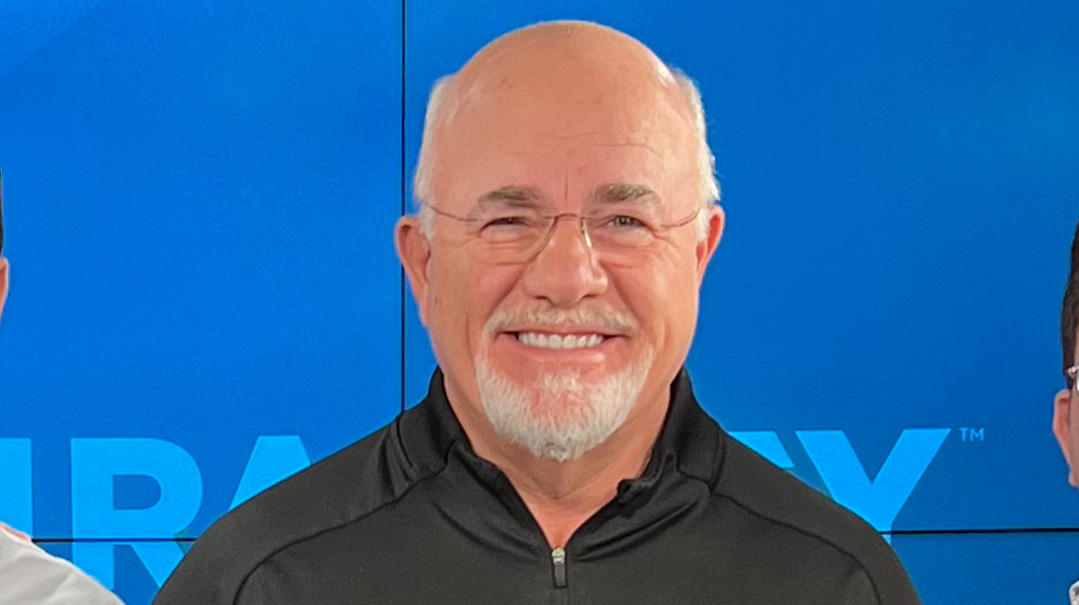
You speak a lot about the value of no debt. Based on that, a 15-year mortgage is better than a 30-year mortgage — people pay it off sooner. But for some, a 15-year mortgage is overwhelming. They can’t handle the higher costs on top of their normal costs of living. In those situations, do you allow for more leniency?
Yes, and the reason is simple. My stance on a 30- versus 15-year mortgage is not based on a biblical argument, which means it’s not set in stone. It’s about getting to zero debt.
I don’t care if you take out a mortgage for 30 years or 15 years. I just want you to pay it off in seven years. The goal is to get 100% paid off as fast as possible.
That’s what sets you free. Your heart and countenance will change when you don’t have a house payment anymore.
It’s the same for spending on a credit card. Even if you only use it as a 30-day loan and pay it off at the end of the month, it’s still debt. You can’t compare using a credit card to being completely debt free — it’s a mental health game changer.
The Jewish community is unique in that we live in set communities. People want a home but can’t afford the monthly mortgage payments for our neighborhood — but it’s not an option to move further out where there’s no community. What’s your advice to them?
It’s frustrating. The people you love and admire — a large portion of your community — are able to do something you can’t. When Sharon and I were in debt we decided to go hardcore until we were out. That meant we were driving a junky car while everyone else was driving good ones, but later, we were able to buy a good one — and didn’t have any payments.
It’s going to be hard. None of the biblical principles I share are short-term microwave fixes. They’re crock pots. You have to cook it for a long time. You’re going to have to sit tight or live at standards you wouldn’t choose otherwise, but the goal is to turn things around.
Here’s the thing: You can’t take out a mortgage you can’t afford. You don’t get a pass on math just because you’re in a different zip code. Math isn’t going to look down and say, “Oh, because you want to live there, it’s okay — you can take out a mortgage that’s 70% of your monthly income.”
If you do take out that mortgage, it’s going to take decades to recover from a peer-pressure induced decision that the math said “no” to. It takes assurance to make the right decision regardless of what everyone else is doing — but that’s not to say it’s not hard. It is. It’s hard.
It helps that G-d has a whole lot more patience than we do. He sees the big picture — meanwhile we just see our buddies moving out all their boxes into their house while we’re stuck in an apartment. It’s tough, but dealing with peer pressure is part of our spiritual journey.
Finances impact everything — religion, family, your ability to be a healthy person. On the positive side, what would you say is the net effect of being financially sound?
For a person of faith, our relationship with G-d is most important, and finances seem very, very far down the list. I first approached my own debt as a math nerd, and I figured if I fixed the numbers, everything else would be okay. The more I looked at it through a biblical lens, though, the more I wondered — “Why does G-d care so much about finances that He’s writing about it everywhere?”
Money feels so esoteric, but personal finance is really 80% behavior and only 20% head knowledge. When we get our head right, it forces us into transformation.
I know countless people who took the steps to go debt free. The vast majority will say, “This impacted our marriage. In order to get out of debt, we needed a joint vision. We needed to communicate. We needed to be in it together.” It’s circular. When you work on your money, you impact your faith, your health, your relationships.
And when you’re a person of faith, that’s even more true. Your finances are going to tie into every part of life even more than it would for someone in the very American culture who lives a very segmented life. We don’t divide between all parts of life. Our faith, our behaviors, and our choices all come together.
It’s not unusual for someone to lose weight when they go out of debt because discipline begets discipline. It’s not unusual to do better at a job. These things work together.
At the end of the day, personal finances is more art than it is money and math.
There’s spirit to it.
Right on the Money
insights for life
The nth degree
Sometimes, all you did by going to college was spend money on something completely useless.
top bracket
The numbers are harsh. Just to make ends meet as an Orthodox Jew, you need to be in the top 2%–3% of all earners.
flying high?
We don’t have any data to indicate that people become millionaires because of airline miles.
beyond the self
Someone once told me that he has many families in his congregation who tithe — and not a single one of those couples has ever divorced. It might be a spiritual thing, but it’s also a practical one. People who give a lot are less selfish, and selfless people make better spouses and parents.
where the heart is
Yes, we often need to put the pedal to the metal and work a lot to make sure the numbers add up. But that’s different from work-life balance. A bad work-life balance is not usually because you’re working too much. It’s that when you’re home, you’re not spending time on the right things.
Deadly Debt
On the dangers of debt: “You can play with snakes and not get bitten, but snakes do bite, so why play with them?”
Dave’s Baby Steps
Save $1,000 for your starter emergency fund.
Pay off all debt (except the house) using the debt snowball.
Save three to six months of expenses in a fully funded emergency fund.
Invest 15% of your household income in a retirement fund.
Save for your children’s college fund.
Pay off your home early.
Build wealth and give.
The Debt Snowball Method
In step two, Dave encourages everyone to pay off all debt — cars, credit cards, student loans, and anything else. Here’s how it works:
Make a list of all ongoing debt (except your mortgage), and order them from smallest to biggest.
Set up minimum payments for all debt.
Attack your smallest debt with a vengeance, paying the minimum plus whatever else you can.
Pay off the smallest debt and then apply that debt’s minimum to your second biggest debt (e.g.: The minimum for your smallest debt was $10 and the minimum for your second was $15. Your smallest is paid off so you now apply that $10 toward the second, paying at least $25 monthly).
Continue to apply minimum payments toward the next debt in line until you’ve paid them all off.
True Freedom
By Rabbi Moshe Haur
Freedom is an incredible gift. Those who are enslaved cannot decide how they will spend their days, nor are they free to pursue that which would be most rewarding, fulfilling, and appropriate. Instead, they are bound to the wishes of others, encumbered by expectations and obligations that they are unable to be liberated from. This is the experience of any borrower, who becomes like a slave to the lender (Mishlei 22:7). While every mail delivery may bring us multiple offers of unlimited credit, following that path to today’s pleasures creates tomorrow’s pressures.
Life’s proper course is to pursue the bounties of Hashem’s world by following a path from pain to pleasure. Today’s difficult efforts anticipate and result in the joys of tomorrow, as “those who plant with tears will harvest with joy” (Tehillim 126:5). Choosing to live on credit means following an inverted path, indulging in the pleasures up front and putting in the work afterward, ultimately shedding tears over long-forgotten joys.
Some may guide you to calculate how big a loan you can qualify for; my father z”l taught me to borrow as little as possible. Credit cards are not a loan mechanism. They are a convenient way to pay without carrying cash and are to be used only when confident that we will pay off the full balance every time and on time. Living that way liberates us to work today for the opportunities of tomorrow rather than to pay for yesterday.
Matzah — the food that serves as the symbol of our freedom — is ironically described by the Torah as the bread of poverty, lechem oni. How can the Torah associate freedom with poverty? The Maharal of Prague (Gevuros Hashem chapter 51) strikingly suggests that much like the poor man, the bread of poverty is simple, uncomplicated, and unencumbered. While the wealthy person who wishes to travel needs to first secure his house, find someone to tend to his fields, and give thorough instructions to his employees — restrained by the past from proceeding to the future — the poor man can just go. Poverty produces simplicity and the liberating experience of being ourselves, unencumbered by burdens that hold us back. While we certainly do not celebrate the challenges of true poverty, we can and should celebrate the freedom we experience when past joys are ours to keep, and tomorrow’s are ours to anticipate.
Allowances
An eagle that doesn’t leave the nest is eventually known as a turkey. We have to give our children the strength of character to win out there, in the rough and tumble of the big bad world. Coddling is damaging to kids because then they get out there without any life skills.
The goal isn’t to raise great kids. It’s to raise kids who will become great adults.
So how do you do that?
You make them brush their teeth so they have teeth. You make them study so they do well in school. We have to make them work — because work is good for them! It teaches them so many of the life skills they need.
Sharon and I gave our kids an allowance for this reason, but we called it “commission.” You work, you get paid. You don’t work, you don’t get paid. We wanted our kids to develop an understanding of that connection: Money comes from work. We’re helping them build the hard-work muscle and also understand that one has a lot to do with the other.
Inflation
There are so many negative emotions you can pour on inflation. It’s frustrating, emotional, and maddening. It makes things tougher. When people ask me how to deal with inflation, I refer back to what Sharon and I had to do when we were the ones making bad financial decisions.
Inflation isn’t that different from putting yourself in debt. One’s about someone else’s bad decisions. One’s about yours. But they both come back to you having a shortage of money.
Because of that, you deal with inflation the same way you’d deal with any other shortage, like when someone loses a job.
When the budget gets tight, it forces us to prioritize very clearly and very carefully. What is first? Is it your house? Or food? What is second?
As you get further down the list, some of the decisions are very painful. A tight budget makes you really decide who you are. If you say, “Private school is so central to our faith — we’re still going to send our kids,” then you’re probably going to have to give up the car. It will force you to get clear: Who are we? What are our priorities?
If you’re already in debt — in over your head…
Something has to change. The house of cards is already caving in, so look at the math and say, what can I do to make this sustainable?
There are only a few ways I see to actually resolve this.
HOUSE POOR: If you have an extremely high mortgage, you can cut out a whole bunch of other expenses to make it somewhat doable. At this point, you’re the definition of house poor. You have a house and can keep paying your mortgage, but you’ve cut back on basically everything else.
SIDE HUSTLE: When someone can’t afford her life it’s because the two sides — expenses and income — don’t add up. If you can’t cut the expenses, the other option is to adjust your income. Get busy with a side hustle or accelerate your career. You need to get the income side up so it’s no longer lower than your cost of living.
STEP BACK: The third option is to consider selling the house. Take a step back and ask yourself what the cost is. If you have the house, what are you giving up instead? Is the house more important than sending my kids to private school? Is the car lease more important than sending them to summer camp? You have to make that choice.
‘Money Talks’ is produced in conjunction with Living Smarter Jewish (LSJ) and Living Lchaim.
LSJ initiatives include free personal finance coaching, education geared toward young couples, referrals to financial planners, curriculum development for high schools and young adults, and video education library.
To request help, please email: info@livingsmarterjewish.org
Living Lchaim is a podcast network dedicated to producing shows that enhance the lives of Orthodox Jews across the world. The Kosher Money podcast, created in partnership with LSJ, hosts lively dialogue around frum financial realities, facilitating awareness and educated decision-making.
(Originally featured in Mishpacha, Issue 950)
Oops! We could not locate your form.

